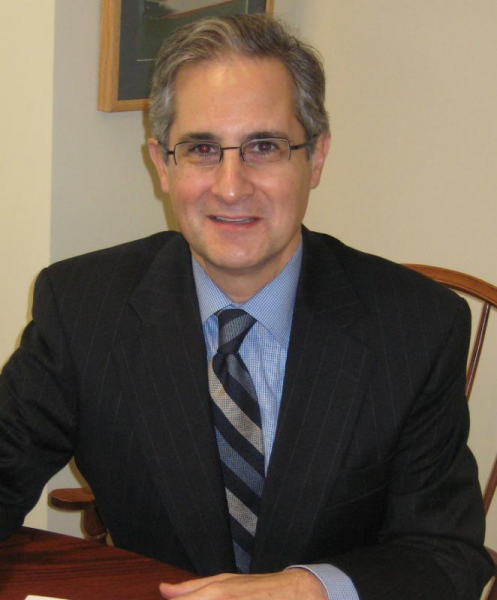The current impasse over the West Coast dockworkers’ contract is worse than during disruptions seen in the last contract talks of 2014-2015. The current impasse is likely to result in permanent West Coast port losses to Atlantic Coast ports, according to Peter Friedmann, executive director, Agriculture Transportation Coalition (AGTC).
Friedmann was speaking to the Propeller Club of Northern California (PCNC) on February 8th where he said that the impasse between the International Longshore and Warehouse Union (ILWU) and the Pacific Maritime Association (PMA) could result in permanent losses for the West Coast ports: “Unlike in 2014-2015, I believe the situation this time is worse because it’s a drip-drip-drip. What’s happening is: it would have been better if we had something dramatic happen for just three months and solved… with this thing lasting on and on, permanent decisions are being made that are irreversible and those are real estate decisions.”
Friedmann said the impasse poses a problem for some agricultural exporters who sell to markets in the Asia-Pacific region and so being forced to transport products, such as hay or almonds, through ports such as Savannah or Charleston is more costly and time-consuming than shipping out of ports such as Oakland, Seattle, and Tacoma.
Friedmann said that he has voiced his concerns to the ILWU and PMA: “I have talked to the extent I can with those parties (i.e., PMA, ILWU), after I’ve mentioned what I’m hearing.”
The response from the two parties has been: ‘We’ve still got automation issues, we’ve still got this issue, and Machinists issues vs ILWU issues’ … But in the boardroom in Kansas City, they’ve run out of patience.”

Ocean Shipping Reform Act (OSRA)
Friedmann expressed optimism that the recently enacted Ocean Shipping Reform Act (OSRA) has prompted the Federal Maritime Commission (FMC) to move more expeditiously to resolve problems that exporters have with ocean carriers such as those related to detention and demurrage.
In addition, the American Trucking Association (ATA) [Editor’s Note: See clarification on decision at bottom of article] “brought a major suit of over $1 billion and it’s named all the chassis providers and the ocean carriers who have these exclusive arrangements, which all of them do, and just this week, an administrative law judge concluded. She ruled that the exclusive arrangements for chassis cannot be mandated for merchant haulage. Under this opinion, and it is still subject to appeal, the trucker for merchant haulage, which impacts about 60% of the moves, cannot be mandated by the ocean carrier to use a particular chassis. I think that is going to free things up dramatically.”
MSC/Maersk Break Up and other Challenges
Friedmann said that with the split up in the carrier alliance between MSC and Maersk, shippers are seeing that MSC is continuing to build more ships and offer more services while Maersk is no longer focused on building more ships, but instead moving to provide ‘end to end services’ within the supply chain. This includes freight forwarding and customs brokerage.
This move poses a threat to existing forwarders and brokers, he said.
Ditlev Blicher, president of Maersk’s Asia-Pacific operations, told Bloomberg that warehouses scattered at different ports would allow Maersk to consolidate shipments originating from different parts of Asia and give more flexibility to where the demand is greatest.
And there are other challenges. Scott Taylor, chairman of GSC Logistics, reported that the State of California has instituted its Advanced Clean Fleet rule, “which means that you can only add a new truck into the California market if it is zero-emissions. The problem is these trucks only cost $400,000 to $500,000 and so by the way they’re not available and if they were available, there’s not an infrastructure of charging stations to support the new trucks … These new rules are being enforced at all ports in California.”
The California Air Resources Board (CARB) is developing a medium and heavy-duty zero-emission fleet regulation with the goal of achieving a zero-emission truck and bus fleet in California by 2045.
Ron Brown, maritime marketing manager Port of Oakland, said agricultural exports flowing through the Port ended up in 2022 on a positive note with exports of almonds doing particularly well. Full exports rose by 4.6%, recording 58,302 TEUs in December 2022 compared to 55,724 TEUs in December 2021.
[Clarification: On Feb. 6th the American Trucking Associations’(ATA) Intermodal Motor Carriers Conference (IMCC) secured a win over ocean carriers as a Federal Maritime Commission (FMC) administrative law judge ruled that requiring motor carriers to use specific intermodal chassis providers to move containers violates the Ocean Shipping Reform Act (OSRA). In 2020, IMCC filed its complaint with the FMC against the Ocean Carrier Equipment Management Association (OCEMA), Consolidated Chassis Management (CCM), and a number of the major ocean containership carriers. The decision is now under appeal. It’s important to note the decision does not apply to chassis providers per se.]

